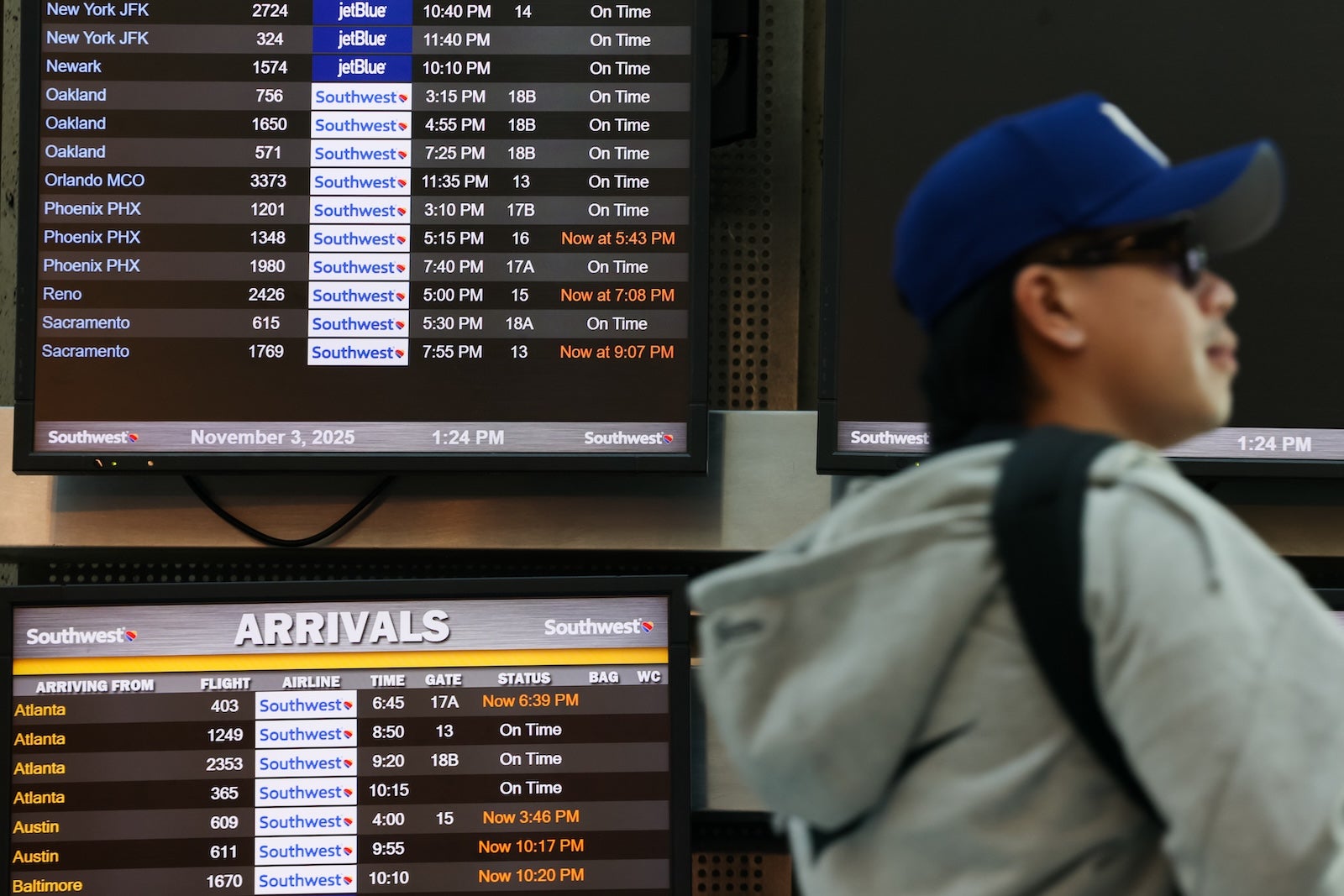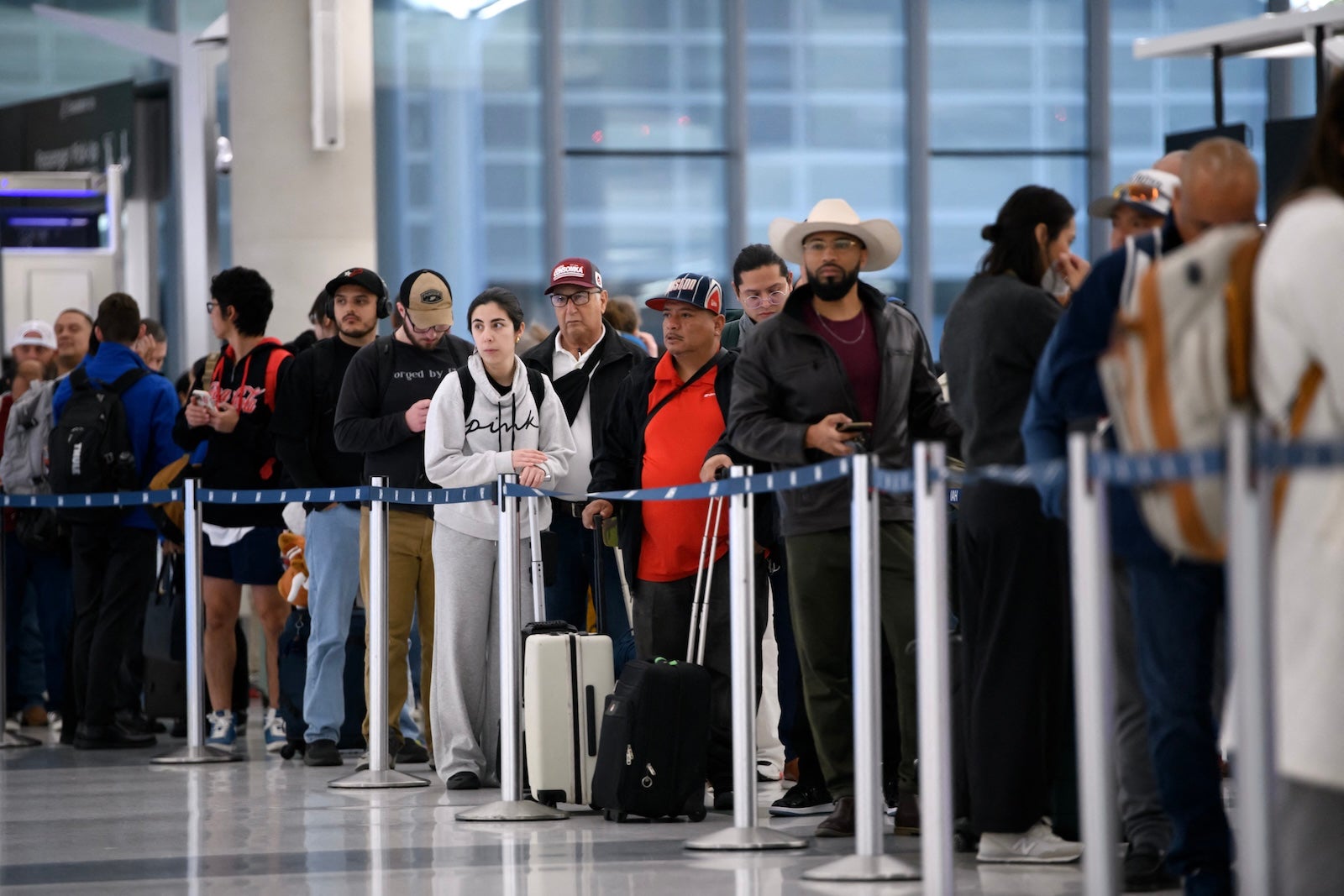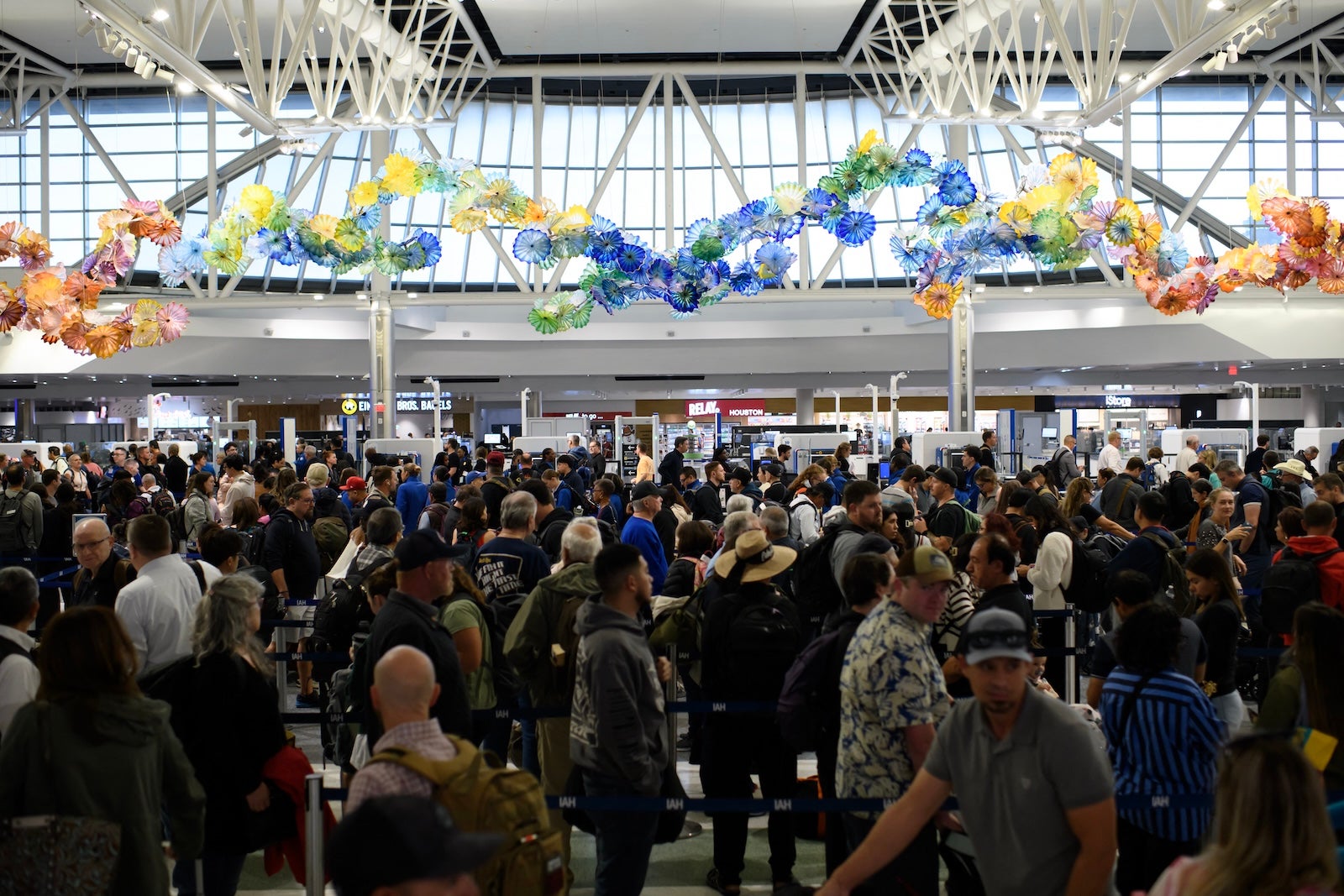The government shutdown is about to affect air travel in a big way.
Starting Friday morning, airlines will have to cancel thousands of flights per day if Congress can’t reach an agreement to reopen the federal government, the Trump administration announced.
Speaking Wednesday afternoon, Secretary of Transportation Sean Duffy said the Federal Aviation Administration will order a 10% reduction in air traffic in each of the country’s 40 biggest cities.
Those cutbacks would likely affect flights at dozens of the nation’s biggest hub airports, with the disruptions to be felt by passengers across the country.
This would be easily the biggest impact to air travel since the beginning of the shutdown, which as of Wednesday was the longest in U.S. history.
The FAA called the measure “proactive” and safety-driven, citing increased strain on air traffic controllers.
Critical aviation sector employees have now gone more than a month without a full paycheck. Call-outs among air traffic controllers began to surge last week, the FAA said — straining an already short-staffed workforce.
“We are starting to see some evidence that fatigue is building in the system in ways that we feel we need to work towards relieving some of that pressure,” Duffy said at a news conference.
Which airports will see flight cuts?
It was not yet clear which airports, routes or flights would be most affected by the flight reductions.

Reward your inbox with the TPG Daily newsletter
Join over 700,000 readers for breaking news, in-depth guides and exclusive deals from TPG’s experts
The FAA planned to meet with airlines late Wednesday to discuss the new temporary restrictions.
FAA administrator Bryan Bedford said the FAA would offer more specifics Thursday about which cities and airports would be most heavily affected — but noted he hoped to make the cuts “proportional” across the major U.S. carriers.
However, Bedford warned, “There will be no perfect solution.”

What should passengers do?
For now, it’s a bit of a waiting game for passengers.
What to do if you’re flying this week
Travelers with flights planned for the coming days — including this weekend — should keep a close eye out for any email, text or mobile app communications from their airline.
It’s possible carriers could issue waivers allowing passengers to proactively make itinerary changes, or otherwise postpone their trip.
Expect to hear more from airlines within the next 24 hours about how they plan to handle the mandated schedule reductions.
“We are working with the federal government to understand all details of the new reduction mandate and will strive to mitigate impacts to passengers and shippers,” Airlines for America, a trade group for the largest U.S. airlines, said in a statement to TPG late Wednesday.

Consider your ‘Plan B’
If I were flying this weekend, I’d certainly be thinking through my backup plan in the event that my flight gets canceled — whether it’s driving, taking a train or canceling my trip altogether.
I’d be especially cautious when flying on an itinerary that includes connecting flights. At this point, it remains to be seen how far in advance airlines will publish their cancellation plans.
We should know more on Thursday.
Flight delayed or canceled? Here’s what to do
Refund rules still apply
Keep in mind, under DOT policy, passengers whose flights are canceled or significantly delayed are due a refund, regardless of the reason for the disruption — if they ultimately choose not to fly.
If you’re scheduled to fly this weekend and your flight gets canceled, you’d be due a refund if you chose not to accept rebooking from the airline.
What does this mean for Thanksgiving?
Friday’s mass flight cancellations will begin with just two weeks to go until the unofficial start of the Thanksgiving travel rush — one that airlines had expected to be a record-breaker.
At this point, it’s too early to know for sure how these flight cuts will affect the upcoming holiday season. After all, much hinges on how long the shutdown drags on.
However, it’s possible travelers could see flight disruptions even if the shutdown ends in short order, the head of the nation’s top air traffic controllers union warned Wednesday.
“It’s going to take weeks to recover,” Nick Daniels, president of the National Air Traffic Controllers Association, said during an interview on CNBC’s Squawk Box.
What to do if you’re traveling for Thanksgiving
If I were booking flights for Thanksgiving, I’d be sure to use a credit card that has travel insurance protections, which can help you recoup the cost of an unexpected hotel stay or meal out if you get stranded.
And, I’d aim for a nonstop flight. If a connection is necessary, I’d opt for a multi-hour layover that will offer you a safety net if your first flight is delayed.

And, consider signing up for a time-saving program to get you through security checkpoints, after we saw hourslong wait times this week at one major hub airport. Like air traffic controllers, Transportation Security Administration officers are working without pay.
US Travel Association: Congress ‘irresponsible’ in causing flight cuts
As of Wednesday, some 3.4 million travelers had seen their flight canceled or delayed as a result of shutdown-induced staffing challenges at the FAA, airlines said Wednesday.
The U.S. Travel Association applauded the FAA’s decision to cut flights in the interest of safety — but called Congress’ actions leading to the shutdown “irresponsible.”
“The shutdown is putting unnecessary strain on the system, forcing difficult operational decisions that disrupt travel and damage confidence in the U.S. air travel experience,” Geoff Freeman, the organization’s CEO, said.
This is a developing story. Check back soon for additional updates.
Related reading:
